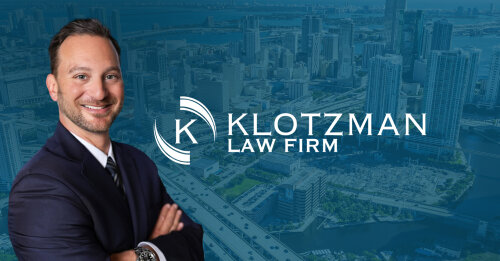Best Class Action Lawyers in New York City
Share your needs with us, get contacted by law firms.
Free. Takes 2 min.
List of the best lawyers in New York City, United States
1. About Class Action Law in New York City, United States
In New York City, a class action allows one or more plaintiffs to sue on behalf of a larger group with similar claims. State court cases are primarily governed by CPLR Article 9, while federal class actions in NYC courts follow Rule 23 of the Federal Rules of Civil Procedure. These actions can cover consumer protection, wage and hour disputes, employment discrimination, securities, antitrust, and defective product claims. Certification decisions hinge on common questions of law or fact, predominance, and whether the class is adequately represented by the named plaintiffs and counsel.
New York class actions require careful class definitions, notice to potential class members, and court oversight of settlements and attorney fees. In NYC, local enforcement and consumer protection concerns often intersect with large, complex actions that span multiple plaintiffs and often require robust data management and expert testimony. Prospective class members should seek legal counsel early to understand whether their claims are appropriate for class treatment and to assess potential damages and fees.
Two important layers exist in NYC: state court class actions under CPLR Article 9 and federal class actions in the Southern and Eastern Districts of New York. Each path has distinct certification standards and procedural rules, but both aim to resolve numerous similar claims efficiently while protecting the rights of individuals within the class. Recent trends include greater scrutiny of certification standards and heightened attention to fairness in settlements, notice, and fee approval.
2. Why You May Need a Lawyer
In New York City, several concrete, real-world scenarios commonly require skilled class action or related litigation counsel. These examples illustrate why individualized legal advice is essential before pursuing or joining a class action.
Scenario 1: You suspect wage and hour violations at a NYC restaurant chain. A large group of tipped employees claims improper overtime pay and misclassification under New York Labor Law. A lawyer can evaluate whether the class can be certified for wage claims, handle notice to potential members, and coordinate with counts of hours worked and tips earned across multiple locations in NYC.
Scenario 2: You were charged hidden fees by a NYC hotel or rental platform. If numerous guests face the same undisclosed fees, a class action under General Business Law § 349 may be viable. An attorney can assess whether the alleged deception affected a broad audience and supervise the legal notices and potential settlements.
Scenario 3: Your employer engaged in discriminatory practices in a NYC office or union setting. If dozens of employees share the same discrimination theory, a class action or a related civil rights action could provide collective relief. An attorney can evaluate issues of predominance, typicality, and the adequacy of representation to determine if a class is appropriate.
Scenario 4: A NYC data breach affects thousands of residents. If a retailer, hospital, or service provider failed to protect personal data, a class action or multi-plaintiff suit may be pursued under privacy and consumer protection theories. A lawyer can assess standing, damages modeling, and the scope of notification duties under applicable laws.
Scenario 5: You purchased a financial product with allegedly misleading marketing. Securities or consumer protection class actions against NYC-based firms can involve complex damages calculations and multiple lead plaintiffs. A lawyer helps review the viability of common questions and supervises expert engagement.
Scenario 6: A NYC real estate or landlord practice affected a broad tenant class. If many tenants allege the same unlawful practice, such as deceptive fees or habitability claims, class action counsel can manage notice, certification, and settlement processes with local court oversight.
3. Local Laws Overview
New York City relies on both state level statutes and federal rules for class actions. The key authorities below are the most relevant for a class action filed in NYC courts or involving NYC residents.
CPLR Article 9 - Class Actions (New York Civil Practice Law and Rules)
CPLR Article 9 governs class actions in New York State courts, including definitions, notice, certification, and settlement procedures. It sets the framework for when a class can be certified and how members are notified and bound by judgments. In practice, courts examine common questions of law or fact, predominance of issues, and the adequacy of the named plaintiffs and counsel. The article has been amended over the years to clarify certification standards and notice obligations for class actions in New York.
Source: General statutory framework for class actions in New York State courts. For statutory text and official summaries, see the New York State legislative resources. New York State Legislature - CPLR (public.leginfo.state.ny.us)
General Business Law § 349 - Deceptive Practices and Consumer Protection
General Business Law § 349 provides a private right of action for deceptive acts or practices by businesses and is frequently invoked in NYC consumer class actions. The statute supports actions seeking injunctive relief and damages for a broad class of consumers who were misled or harmed by a business practice. NYC courts have applied § 349 to a wide range of industries, including retail, hospitality, and online services.
Source: New York General Business Law § 349. See official statute page and enforcement context. GBL 349 - New York Senate
Rule 23 of the Federal Rules of Civil Procedure (Class Actions) - Federal Courts in NYC
For class actions filed in federal court in New York City, Rule 23 governs the requirements for class certification, notice, and settlement. The rule requires that questions common to the class predominates over individual questions and that the class is sufficiently numerous and typical to represent. It also addresses exigencies of class counsel and settlement fairness under court supervision.
Source: Federal Rules of Civil Procedure, Rule 23. Cornell Law School - Rule 23
Recent trends in New York City include heightened scrutiny of class certification standards and closer attention to the fairness of settlements and notice procedures. NYC courts emphasize ascertainability of class members and rigorous evaluation of common questions, especially in consumer protection and wage actions.
4. Frequently Asked Questions
What is a class action and who can join?
A class action allows many people with similar claims to sue as a group. You may join if you are a member of the defined class and your claim arises in the same way as others. Certification limits who may participate and binds the class to the court’s decision.
What is required to certify a class in New York?
The court must find common questions of law or fact, predominance of those questions, and the adequacy of the representative plaintiffs. The class must be sufficiently numerous and ascertainable. The court also considers the manageability of the case and the proposed settlement terms.
How much does a class action cost and who pays the fees?
Costs are typically paid from the settlement or judgment proceeds. Attorneys may seek a percentage of the recovery as fees, subject to court approval. If you opt not to participate, you usually do not pay separate fees unless you hire a lawyer directly for an independent action.
Do I need to hire a lawyer for a class action?
Yes. Class actions involve complex standards for certification, notice, and settlements. A class action attorney can assess whether your claim fits CPLR Article 9 or Rule 23, help define the class, and guide you through settlements and appeals.
What is the difference between a class action and a mass tort?
A class action involves a defined class of people with common issues seeking a single resolution. A mass tort involves many individuals with similar claims but typically with individualized issues that may not be certified as a single class.
How long does a NYC class action typically take?
Timeline varies by case complexity, often spanning months to several years. Certification hearings, discovery, and settlement discussions can each take substantial time, especially in large consumer or wage actions.
Can a class action be certified in both state and federal courts?
Yes. Some claims may be litigated in state court under CPLR Article 9, while others may proceed in federal court under Rule 23. Parties sometimes file parallel actions only to consolidate or coordinate later.
Should I join a class action if I am offered a separate settlement?
You should consult counsel before joining or rejecting a class settlement. Separate settlements may affect your rights and the overall recovery of the class, including attorney fees and release terms.
Do I need to live in New York to participate in a New York class action?
Not necessarily. Several class actions involve residents of New York and others who are affected by the same conduct. The defining factor is whether your claims fit the class definition under CPLR Article 9 or Rule 23.
Is there a way to know if a class action is right for my case?
A NYC class action attorney can review the facts, jurisdiction, potential class definition, and possible damages to determine if a class action is appropriate or if an individual suit is better.
5. Additional Resources
The following official resources can help you understand class actions, procedures, and protections in New York and federally. They are useful for evaluating your options and finding appropriate legal aid.
- New York State Office of the Attorney General - Consumer Protection - Provides information on consumer protection rights, deceptive practices, and how to file complaints under General Business Law § 349. https://ag.ny.gov/consumer-protection
- New York Senate - General Business Law § 349 - Official statute text and legislative history for the deceptive acts law used in many class actions. GBL 349
- Court Rules for Federal Class Actions - Rule 23 of the Federal Rules of Civil Procedure, governing class actions in NYC federal courts. Rule 23
- New York City Department of Consumer and Worker Protection (DCWP) - Local consumer protection guidance and complaint channels relevant to class action claims against NYC businesses. DCWP
In New York, General Business Law § 349 provides a private right of action for deceptive acts or practices by businesses, a common basis for consumer class actions in NYC.
Source: Office of the New York Attorney General and New York Senate. AG Consumer Protection, GBL 349
6. Next Steps
- Identify potential class action questions in your NYC area by listing common facts and damages shared with others. Timeline: 1-2 weeks.
- Consult a NYC class action attorney to evaluate your case under CPLR Article 9 or Rule 23. Schedule an intake within 2-3 weeks of discovery of the issue.
- Gather and organize documents that demonstrate a widespread impact, including contracts, notices, receipts, or communications. Timeline: 2-4 weeks.
- Discuss overall strategy, class definition, and potential notice and settlement plans with your counsel. Timeline: 1-2 weeks after intake.
- Decide whether to pursue a certified class action or an individual action with parallel claims. Timeline: 1-3 weeks after strategy meeting.
- Enter into a formal retainer with a NYC attorney or law firm experienced in class actions. Timeline: 1 week after decision.
- Monitor and participate in court hearings, discovery, and settlement negotiations as directed by your attorney. Timeline: ongoing, often months to years.
Lawzana helps you find the best lawyers and law firms in New York City through a curated and pre-screened list of qualified legal professionals. Our platform offers rankings and detailed profiles of attorneys and law firms, allowing you to compare based on practice areas, including Class Action, experience, and client feedback.
Each profile includes a description of the firm's areas of practice, client reviews, team members and partners, year of establishment, spoken languages, office locations, contact information, social media presence, and any published articles or resources. Most firms on our platform speak English and are experienced in both local and international legal matters.
Get a quote from top-rated law firms in New York City, United States — quickly, securely, and without unnecessary hassle.
Disclaimer:
The information provided on this page is for general informational purposes only and does not constitute legal advice. While we strive to ensure the accuracy and relevance of the content, legal information may change over time, and interpretations of the law can vary. You should always consult with a qualified legal professional for advice specific to your situation.
We disclaim all liability for actions taken or not taken based on the content of this page. If you believe any information is incorrect or outdated, please contact us, and we will review and update it where appropriate.

















